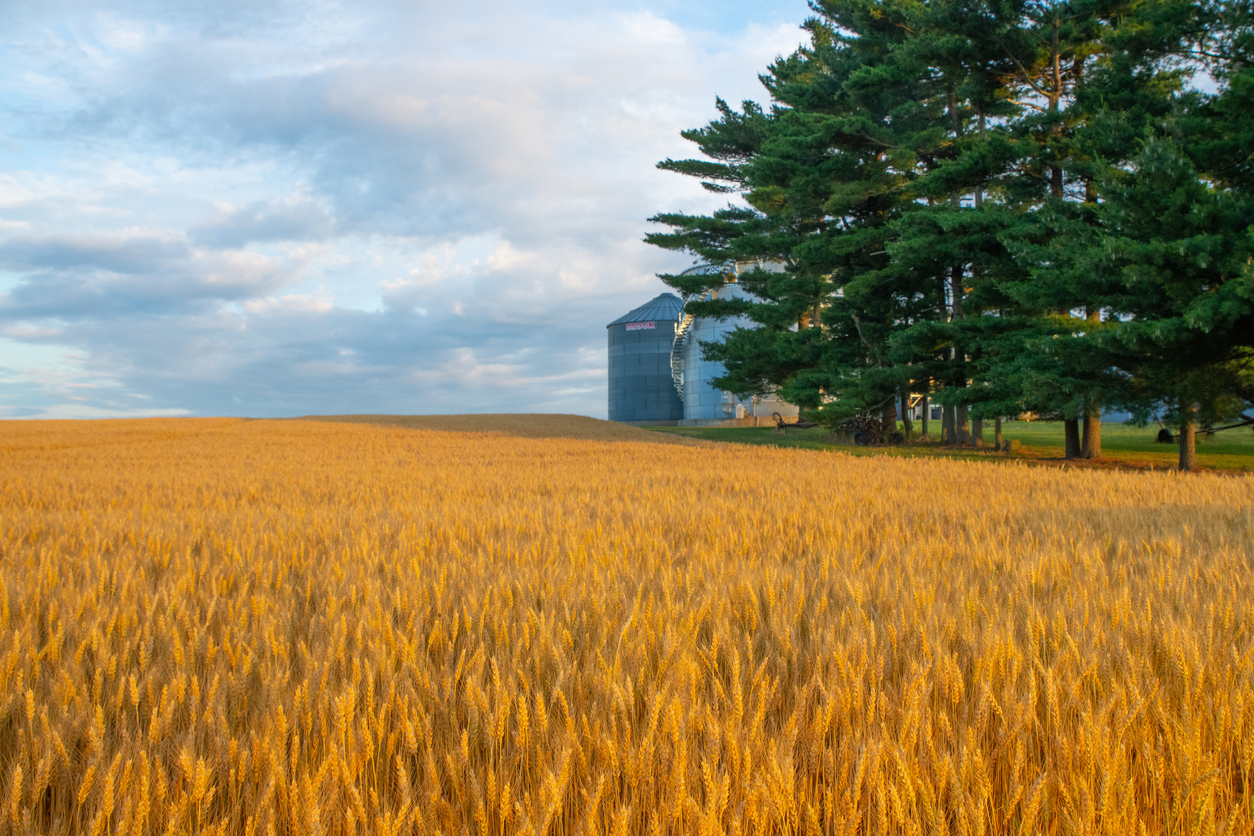Some of the most important agtech developments in the last decade have come not from Silicon Valley, epicenter of all things tech, but from startups dotted about the center of the US.
From the vantage point 2023 provides, Midwest agtech seems like a no-brainer, since the region leads the country in row crop production and is also home to vast amounts of speciality crop and livestock farming. However, there was a time in the not-too-distant past when agtech as we know it was relatively non-existent in these regions.
These days, agtech is entrenched deeply into the food system, and some Midwest regions are becoming well-known hubs for agtech innovation that crosses robotics, software, ag biotech and agrifintech. One such area is Indiana, which was recently dubbed a tech hub by the US Economic Development Administration.
“There’s an intersection that is undeniable between plant science, animal health and human health,” Mitch Frazier, CEO of AgriNovus Indiana, an initiative growing ag bioscience innovation in Indiana, told AgFunderNews.
AgriNovus is one of the six initiatives from the Central Indiana Corporate Partnership, formed in 1999 to foster growth in the region between corporations, foundations and universities.
Frazier (MF), a veteran of both the tech and ag worlds, has led the charge at AgriNovus for the last four years. Below, he shares some thoughts with AgFunderNews on the last decade in agtech in the Heartland.
AgFunderNews (AFN): What’s been the most important development(s) in Midwest agtech in the last decade?
MF: The Midwest witnessed two ag bioscience IPOs in the last decade – Elanco and Corteva Agriscience – with both companies choosing Indianapolis as their global headquarters.
Since then, both have made bold moves. Elanco acquired Bayer Animal Health, making it the second largest independent animal health company in the world. Corteva made two big biologicals acquisitions – Stoller and Symborg – and from the stage of World Agritech 2023, the company announced an innovative partnership with Chevron and Bunge to develop a new low-carbon fuel.
High-growth venture-backed companies also found the Midwest an ideal place to grow over the past decade. Brazil-founded agtech company Solinftec completed a $60 million raise in 2022, and after relocating its global headquarters to Indiana in 2020, Israel-founded agtech company Taranis subsequently raised a $40 million Series D in 2022. Animal health innovator BiomEdit (a spinout of Elanco) also raised $40 million in a Series A in 2022. Three of the top five venture capital deals in Indiana in 2022 were from agtech companies – a first for the state. [Disclosure: AgFunderNews’ parent company AgFunder is an investor in Solinftec.]
AFN: What’s surprised you most in the past 10 years in agriculture?
MF: Over the past decade, digital evolved from a product category to a source of differentiation.
Early on, the industry saw high growth “digital leaders” emerge only to find many struggling a few years later to deliver measurable value from the farm gate to the dinner plate. While many made acquisitions and investments to gain digital strength, the companies emerging as leaders today are the ones who integrated digital across their product portfolio rather than managing digital as a separate product.
A great example comes from the nation’s largest independent retail seed brand – Beck’s Hybrids. The company launched its own farm management information system called FARMserver to enable its growers to better use data generated on the farm to guide operational decisions. FARMserver isn’t a priced product, it’s part of the differentiated, value added offering the company provides to producers who choose to buy its seed.
The industry also witnessed agricultural equipment manufacturers making big moves toward automation and autonomy in the past 10 years. John Deere’s 2017 acquisition of Blue River Technologies ignited an era of acquisitions, investments and innovation that forever changed the equipment industry.
CNH Industrial’s acquisition of Raven Industries in 2021 brought autonomy assets to its portfolio, and John Deere’s acquisition of Bear Flag Robotics the same year added even more autonomous assets to its stable. The move by Deere to acquire Bear Flag came only months before the machinery juggernaut unveiled its fully autonomous production agriculture machine at CES 2022. [Disclosure: AgFunderNews’ parent company AgFunder was an investor in Bear Flag Robotics.]
Agco followed suit in 2023, with its acquisition/JV of Trimble – a move that brings the two companies together to accelerate autonomy. This quickening pace of innovation and acquisition are all aimed at addressing the mounting labor challenges and the desire to increase operational precision and execution.
AFN: How would you describe the ag majors’ responses to agtech over the past 10 years? Do you think it’s changing and will they get more acquisitive?
The global operating environment – specifically the cost and availability of capital – will shape the next chapter of the ag bioscience economy. Large corporations with cash on their balance sheets will be uniquely positioned to acquire earlier-stage innovators who may struggle to access capital amidst high interest rates and challenging valuations.
This won’t be left to big companies alone. Financial institutions could make an entry into the agtech market. Driven by a desire to enable customers to increase net farm income through lower operating costs, lenders may reward producers with reduced interest rates if they agree to submit standardized performance data from operations. This could provide lenders with more operational insight to move beyond balance sheet-based lending and provide producers access to lower cost capital.
The byproduct of this new reality could be what many have sought to achieve – a standardized data set to serve as the foundation for an entirely new era of agtech innovation, interoperability and optimization.
Check out more on Midwest agtech and the decade in agrifoodtech in AgFunder’s 10-year e-zine.





